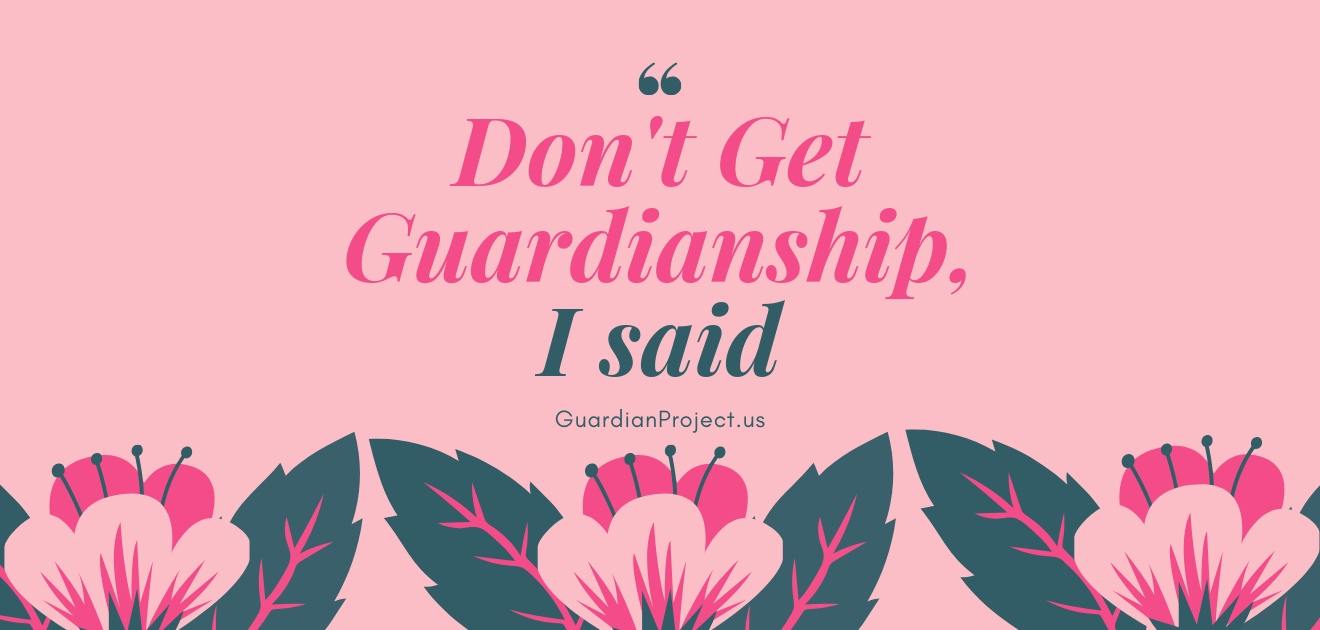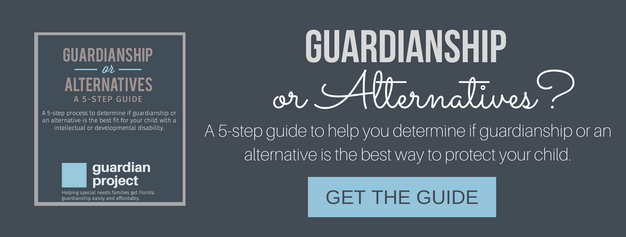Why I recommended to a parent of a child with a disability that it was unnecessary to get guardianship.
Here’s a bit of advice I don’t have the opportunity to give out, well, ever:
“Don’t get Guardianship”.
But I did it for the first time last week.
It was one of these unicorn situations that I have yet to encounter in nearly a decade of helping special needs families with Guardianship.
Mom, Jodi, wrote in through the Guardian Project website about needing help getting started with guardianship for her 17 year old son who has severe ADHD and anxiety.
But the more we chatted about her son’s life skills, the more convinced I was that he didn’t need a guardian.
I mean, I have read many articles that these sort of situations exist. It’s why I have a whole page on the Guardian Project website devoted to Alternatives to Guardianship. But honestly, I have never given this recommendation to a parent. Not once.
Why I Told A Mom She Doesn’t Need Guardianship
On our call, I went the through with Jodi the checklist I use to determine if a child really needs guardianship.
Jodi described her son as being smart. He attends GenEd classes and gets good grades. She said he can have trouble figuring out some of life’s basics, but she attributed this more to laziness (and being able to rely on Mom), than incapacity due to disability.
As she described him to me, Jodi’s son seems to be a reasonably compliant young man, who is happy to live at home and have Mom continue to help him with finances and medical decisions.
I asked Jodi if she thought that her son was a “flight risk” – would he run out on his own and try to get his own place without her permission, or associate himself with “bad” people who really didn’t have his best interest in mind? She answered “No.”
So I did what I’ve never done before. I advised Jodi to skip Guardianship. At least for now.
My recommendation was to (1) get a Power of Attorney from her son (which he seems to be able to have the capacity to enter into): (2) become a joint account holder on any bank accounts he may have; and (3) become a representative payee in the unlikely event that her son qualifies for Social Security benefits.
I also recommended that Jodi talk to all her son’s doctor’s and get the necessary paperwork in place for Jodi to continue to participate in her son’s healthcare after he turns 18.
Then I Told Her To Just Wait, and See What Happens
My suggestion to Jodi was to simply wait. Give it a year to see how things go.
Either her son will become more independent and will take over these responsibilities on his own, or they would just continue down this path for the indefinite future. If things changed for the worst, she could always revisit guardianship after her son turns 18.
Remember, these “alternatives” give Jodi many of the same rights a Guardian would have, but with one major difference: without Guardianship, Jodi’s son keeps his right to manage his own healthcare and make financial decisions.
With guardianship, those rights are removed by a court, given to the Guardian, and require a legal proceeding to have them restored.
This is an extreme course of action (the removal of someone’s personal rights) that, usually in my world, is completely necessary. It’s what prevents our kids from getting hurt or victimized.
I was happy to recommend to Jodi that her son should keep all of his rights. And I was excited to finally find a real-life family who is living with an intellectual disability, but who doesn’t need Guardianship.
Jodi was thrilled to learn that she didn’t have to go through the time and expense of an entire Guardianship proceeding, or have the court system involved in the parenting of her son.

